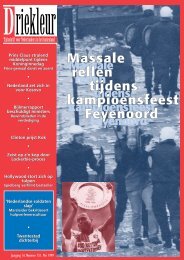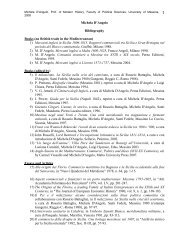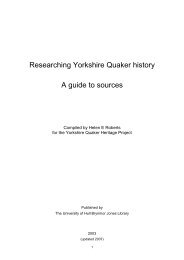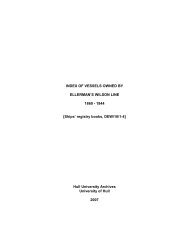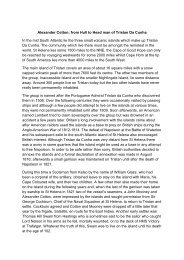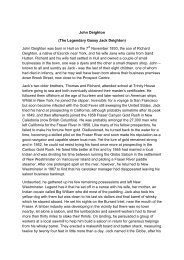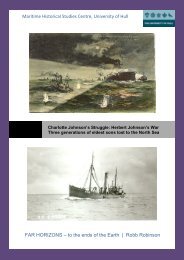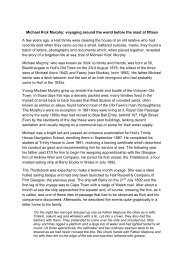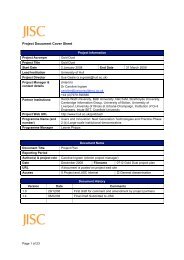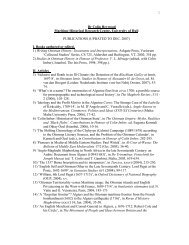The North Atlantic Fisheries, 1100-1976 - University of Hull
The North Atlantic Fisheries, 1100-1976 - University of Hull
The North Atlantic Fisheries, 1100-1976 - University of Hull
You also want an ePaper? Increase the reach of your titles
YUMPU automatically turns print PDFs into web optimized ePapers that Google loves.
non-Greenlandic speakers are at hand. In recent years people with a<br />
knowledge <strong>of</strong> the language have read and translated Greenlandic<br />
literature and newspapers. 169 Furthermore, some <strong>of</strong> the articles in local<br />
newspapers have been translated into Danish for the authorities to read in<br />
Copenhagen. <strong>The</strong>se translations can be found in the archives. Some<br />
Greenlandic fiction has also been translated into Danish. 170 Besides that,<br />
Danish civil servants in Greenland have participated in the debate, partly<br />
in the periodical Det grønlandske Selskabs Årsskrift and other<br />
periodicals, and partly in memoirs. All administrative papers are in<br />
Danish.<br />
<strong>The</strong> changes in the material side <strong>of</strong> Greenlandic society are well<br />
documented in contemporary reports among which the central one is<br />
Beretning og Kundgørelser. An excellent statistical survey, covering the<br />
period from about 1850 to 1938, was made in Copenhagen during the<br />
war and published between 1942 and 1947. Its numerous tables and<br />
textual explanations cover in many ways a broader field than the yearly<br />
reports. Research on Greenlandic reactions in the period should<br />
commence with the minutes <strong>of</strong> the Greenlandic Country Councils, which<br />
were greatly concerned with the fishery. A print out for teaching<br />
purposes <strong>of</strong> the debate on fishing between 1924 and 1939 covers 100<br />
standard pages.<br />
Changes in Greenlandic attitudes are harder to register. Some<br />
important topics must at this point be left to speculation. Thus, Ditte<br />
Goldschmidt pointed out in 1994 that because <strong>of</strong> the change in the<br />
fishing economy the Greenlanders lost the last business in which they<br />
were the acknowledged experts, namely seal hunting. Now they had to<br />
be pupils <strong>of</strong> Danish civil servants to earn a living. This must have been<br />
detrimental to their self-confidence.<br />
That the Greenlanders demanded that their children should be trained<br />
in the Danish language puzzled the contemporary Danish authorities<br />
who believed that this was due to the need to learn the new industries. 171<br />
Another factor was the colonial situation in general. Assimilation was in<br />
fact an issue for some colonial native elites in the French African<br />
colonies between the wars. By considering the colonial status <strong>of</strong><br />
169 Among them Chr. Berthelsen, H.C. Petersen, and Kirsten Thisted<br />
170 Mathias Storck, En Grønlænders drøm (1913). Augo Lynge, 300-år efter<br />
(1931/1992).<br />
171 Axel Kjær Sørensen (1983) 56-61.<br />
93



